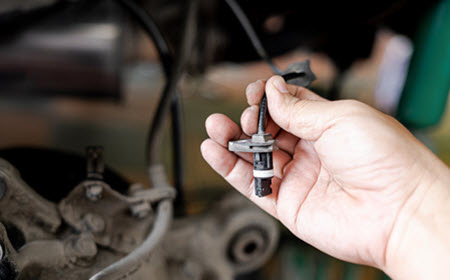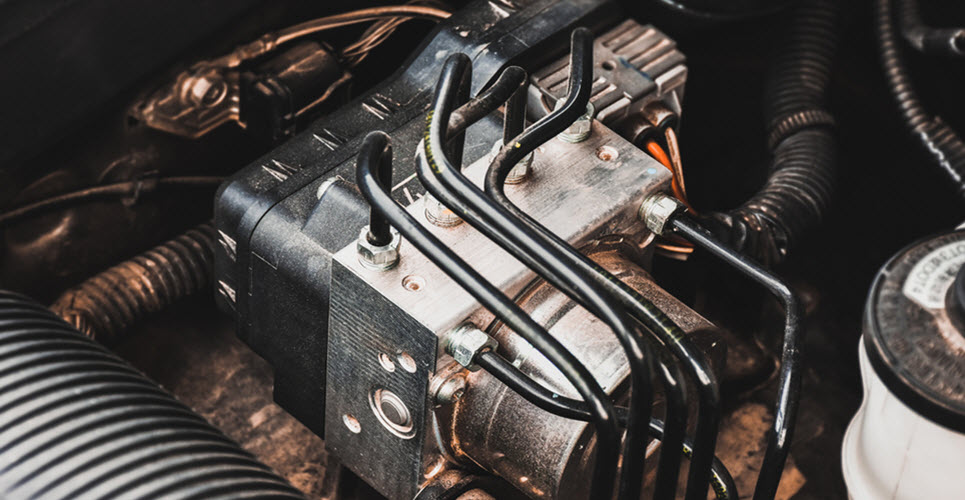ABS, or Anti-lock Braking System, is a safety feature in modern cars that helps drivers maintain control during emergency braking situations. The ABS module is a computer that monitors the speed of each wheel and uses hydraulic pressure to prevent the wheels from locking up. This allows the driver to keep steering while braking, which can be essential for avoiding obstacles or other vehicles.
ABS was first introduced on Volkswagen cars in the 1970s, and today it is standard equipment on most passenger vehicles. While ABS can be beneficial in many situations, it is important to remember that it cannot completely prevent accidents. Drivers should always exercise caution and use ABS only when necessary.
The Components of an ABS System
ABS modules work by constantly monitoring the speed of the wheels and applying the brakes as needed to keep them from locking up. This helps to improve braking performance and safety, especially on wet or icy roads.
ABS modules are durable and usually require little maintenance, but they can occasionally fail and need to be replaced. When this happens, it is important to have the module replaced by a qualified technician. Let’s look at its components:
- Sensors: The sensors are located at each wheel and they monitor the speed of the wheel.
- Control module: The control module is the computer that processes the information from the sensors.
- Valves: The valves are located at each brake and they control the amount of pressure that is applied to the brakes.
The system is designed to prevent the wheels from locking up when the brakes are applied. The system will automatically pump the brakes if it senses that the wheels are about to lock up. This prevents the wheels from skidding and losing traction.
All modern Volkswagen models are equipped with an ABS system. The components of the system are located in different places on the vehicle. The sensors are located at each wheel, and they send signals to the control module. The control module is located under the hood, and it controls the valves. The valves are located at each brake, and they modulate the pressure that is applied to the brakes.
When you apply the brakes, your foot presses on a pedal that activates a pump. This pump supplies pressure to the valves, and this pressure is used to apply the brakes. If you were to press on the pedal without ABS, all of the pressure would go to one valve.
ABS Malfunction
The cause of an ABS failure can vary depending on the make and model of the vehicle. However, there are some common issues that can lead to an ABS system malfunction.
- One potential cause is a problem with the speed sensor. The speed sensor is responsible for measuring wheel speed and relaying this information to the ABS controller. If the sensor is not working correctly, the controller will not be able to properly regulate braking pressure, potentially leading to a failure.
- Another common issue is a problem with the power supply. The ABS system requires a stable power supply in order to function properly. If there is an issue with the electrical system, it can cause the ABS system to fail.
- An additional potential cause of an ABS failure is a manufacturing defect. In particular, there have been issues with certain models of Volkswagen vehicles in which a manufacturing defect can cause the ABS system to fail.
As you can see, the ABS module is a vital part of a car’s braking system. It helps to prevent the wheels from locking up during braking, which can lead to loss of control and skidding. While ABS modules are durable and usually require little maintenance, they can occasionally fail and need to be replaced. When this happens, it is important to have the module replaced by a qualified technician who is certified in VW models.
Come Visit Us at Hagan’s Motor Pool
At Hagan’s Motor Pool, we’re committed to quality  auto maintenance and straightforward, honest customer service. German vehicles are known for their high standards for performance and comfort, and our team works closely with you to make sure that you always enjoy the absolute best from your German vehicle. Call us today!
auto maintenance and straightforward, honest customer service. German vehicles are known for their high standards for performance and comfort, and our team works closely with you to make sure that you always enjoy the absolute best from your German vehicle. Call us today!

